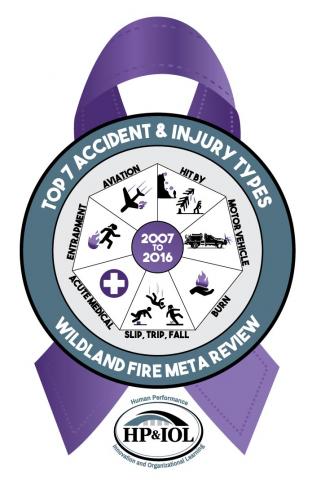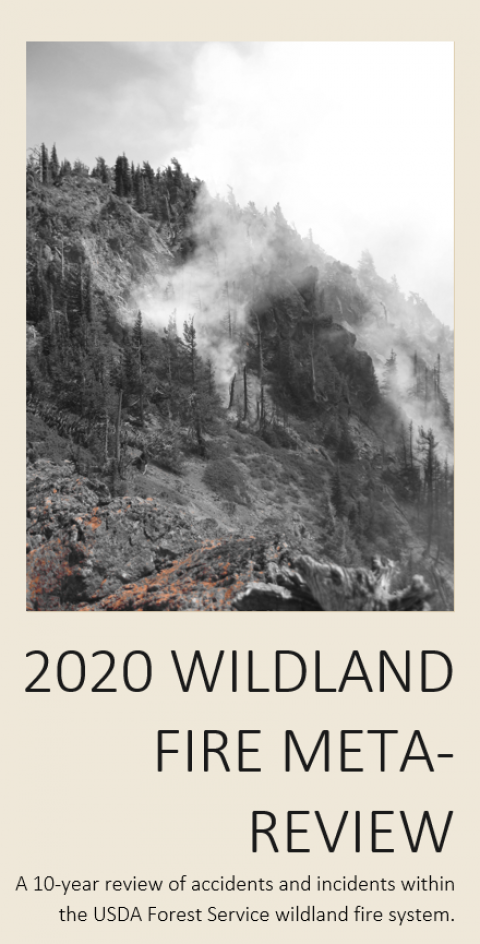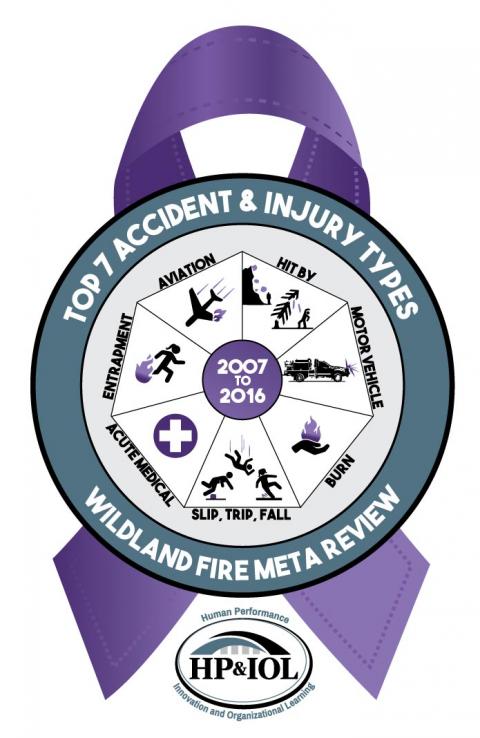
The impetus for the wildland fire meta-review were the fatalities that occurred in the 2015 Twisp River wildfire. The Twisp River Fire Fatalities and Entrapments Learning Review recommended that the USDA Forest Service “conduct a broad-spectrum learning review” to “detect and study patterns within the current system.” The review addresses and analyzes fatality, fire entrapments, and serious injuries in the Forest Service over a ten-year period (2007-2016). By mapping trends and commonalities in accidents, incidents, and normal work practices, HP&IOL, through the expertise of team members, internal subject matter experts and external academic specialists, has identified successes, as well as potential improvements to individual and organizational learning needs within our wildland fire system. Key Findings: • Mechanism of fatalities remains unchanged • Significant debate on the status of vision in the organization • Challenges with our system of communication both internal and external • Social and political pressure effects and conflicts • Dispute around safety culture construct • Conflict around funding and priorities • Increased need for mental health assistance • Overtime and other pay structure challenges • Futuring needs A combination of qualitative research and qualitative focus group interviews were used to derive the key findings of the Wildland Fire Meta-Review. Additionally, adult learning principles were applied to facilitate learning discussions. While this phase of the Wildland Fire Meta-Review (2007-2016) is coming to a close, the intent is that conducting Meta-Reviews become a normal work practice within the US Forest Service. The final chapter of the Meta-Review offers a potential learning strategy as a foundation for future learning where Meta-Reviews become part of normal work for the Forest Service.

